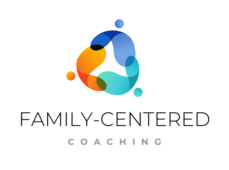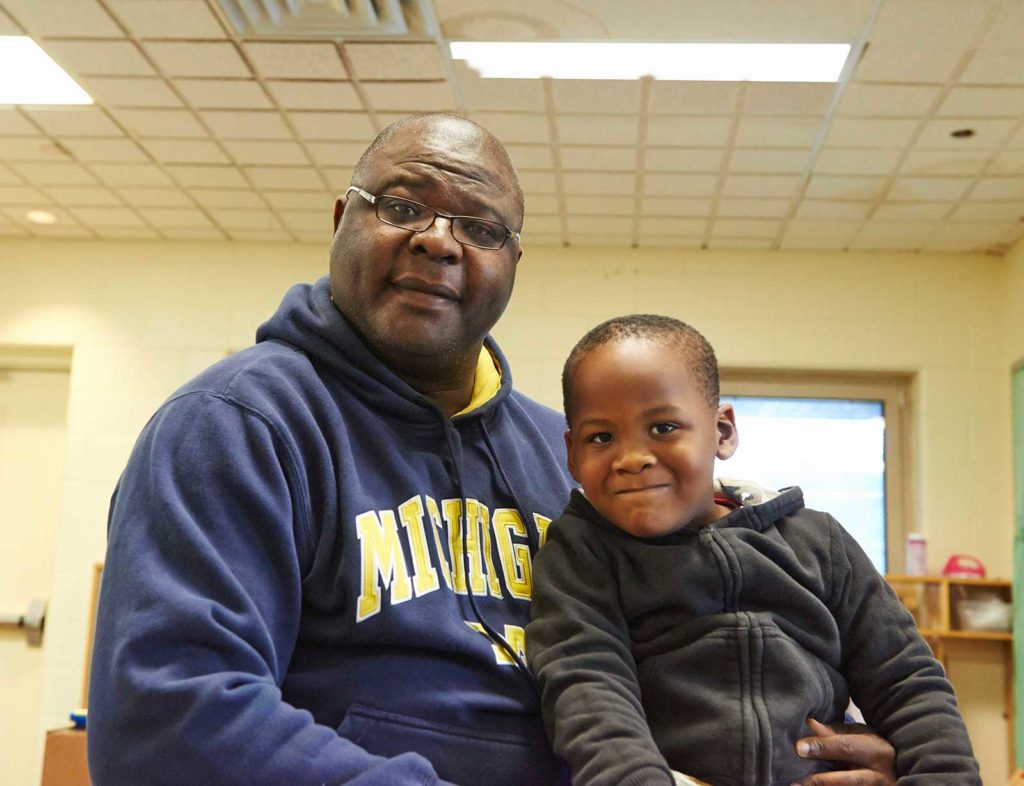Family-Centered Coaching is a set of strategies, tools, and resources that help human service organizations reinvent how they engage with families experiencing poverty. Family-Centered Coaching offers coaches, managers, and organizations a path to create and sustain robust holistic services and programs. By deciding to partner with families to address their needs and make progress on their goals, this partnership increases the likelihood of long term success for everyone involved.
Holistic
Through Family-Centered Coaching, organizations can create opportunities to see and serve families holistically. For example, a parent may have goals to buy a home, to support their child’s artistic interests, and to help an aunt with handling medical debt. Staff might focus solely on the goal that is most inline with their program outcomes. Yet all three of the parent’s goals are interrelated. Can the parent buy a home and still afford to support their child’s artistic interests? Does the aunt need immediate financial support to manage her medical costs, and if so, how does that affect the family’s current and future budget and choices?
Without knowing the full range of family interests, many things could happen. A family might make choices that limit their ability to reach family goals in another area of life. Buying the home might mean the child can’t take art classes. Or, unexpected events might pop up, and, having taken out a mortgage, the family might have to sell their house if the aunt’s medical condition becomes more urgent.
Participant-Led
Participants are in the best position to know what solutions will work best for them. Even when coaches think they have the “right answer,” it may not be a fit for each unique family. When participants feel judged or told what to do, it is unlikely that they will follow up on that advice. Alternatively, the practice of Family-Centered Coaching gives participants space to explore challenges and opportunities and come to their own solutions in a timeframe that works for them. Through this, participants tap into their intrinsic motivation to take and sustain action.
Fluid
Families are most successful when supported by a range of approaches. While there are many other approaches to engage with families, such as mentoring, counseling, solution-focused therapy, and family-support services, Family-Centered Coaching focuses on case management, readiness assessment, and coaching because they are most readily applied and used by providers across different fields.
Family-Centered Coaching offers guidelines to fluidly switch between these three approaches. For example, a family may start with a goal of finding a job but then lose their apartment. Then the participant and coach may decide to hold off on pursuing that job goal and move into case management mode to solve the housing issues. In a different scenario, a participant starts with the goal of becoming a nurse, but after two months they haven’t taken the steps discussed during the coaching sessions. The participant and coach may decide to step back and assess readiness for change using motivational interviewing to help identify what is going on in the participant’s life. Identifying which approach to use, and when, is one of the central skills of family-centered coaching.
Integrated
To empathetically and effectively partner with participants and families, Family-Centered Coaching integrates emerging practices from trauma-informed care, behavioral economics, and executive-skill building. These disciplines set important context for how people operate in the world, and provide tips for how to make changes easier.
All of us are constantly making big and small decisions, People with fewer resources are constantly forced to do more with less. Recent research shows that people with fewer resources have much higher stress levels because of the constant juggling and need to keep a family afloat. Added to this are the underlying and pervasive stressors of systemic racism and poverty, creating ongoing high levels of stress that affects decision-making. People under stress tend to focus narrowly on the current problems in front of them, a process called “tunneling,” which makes it hard to see beyond the crisis at hand. Family Centered Coaching recognizes that institutional racism, implicit bias, poverty, and inequality causes many families to experience trauma and toxic stress on a daily basis.
Given these realities for low-income people, this research is “baked-in” to the mindsets, skills, tools, and resources offered through Family-Centered Coaching. Explore these promising practices and discover new opportunities to reduce stress and support families to make progress on their goals.
The Prosperity Agenda provides these resources as the designated national administrator of Family-Centered Coaching.

